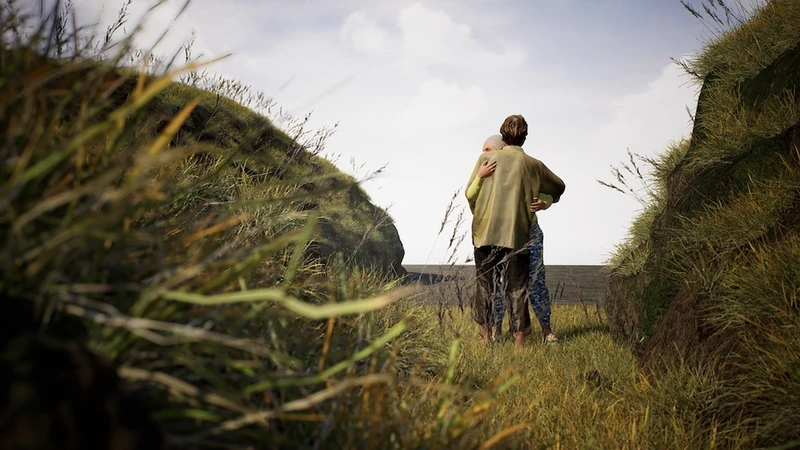Rhona Mühlebach: Ditch Me
23 Sep-2 Dec 2023


A new exhibition by Rhona Mühlebach.
The Antonine Wall stretched across Scotland from the Clyde to the Forth. It was the Roman Empire’s final border in Britain and its construction has left a still-visible scar across the country. Rhona Mühlebach’s new work – Ditch Me – draws on the gradual evolution of that landscape, transposing historical aspects into a new fictional universe. A variety of characters and stories populate her film: Roman and medieval soldiers, a barber, two lovers, lice, some slime mould, a thief, a humming violinist, and a latrine cleaner, among others. In the spirit of world-building, this tapestry of anecdotal events is linked through the ditch-world, suggesting a series of multi-dimensional slices of time. In this strange new realm, even slime mould can become an articulate character or an all-powerful being.
For Mühlebach, this creation touches on questions of how a narrative is generated. For Ursula Le Guin, a vital world builder, finding new ways to tell stories was essential. In her essay, The Carrier-Bag Theory of Fiction she declares that:
“It sometimes seems that that story is approaching its end. Lest there be no more telling of stories at all, some of us out here in the wild oats, amid the alien corn, think we'd better start telling another one, which maybe people can go on with when the old one's finished.”
And so she found herself writing in a non-heroic, inclusive style:
“when I came to write science-fiction novels, I came lugging this great heavy sack of stuff, my carrier bag full of wimps and klutzes, and tiny grains of things smaller than a mustard seed, and intricately woven nets which when laboriously unknotted are seen to contain one blue pebble, an imperturbably functioning chronometer telling the time on another world, and a mouse's skull; full of beginnings without ends, of initiations, of losses, of transformations and translations, and far more tricks than conflicts, far fewer triumphs than snares and delusions; full of space ships that get stuck, missions that fail, and people who don't understand.”
This may offer a useful approach to Mühlebach’s consideration of narrative and storytelling. As Le Guin points out, ‘It is a strange realism, but it is a strange reality.’